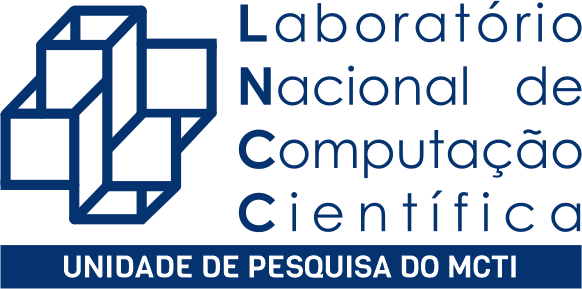EVENTO
Overview of VBI and Pathosystems Biology
Tipo de evento: Seminário LNCC
SOBRAL, BRUNO WALTHER S. PhD, VBI Executive and Scientific Director; Professor; Professor of Plant Pathology, Physiology and Weed Science 1989 Ph.D., Genetics, Iowa State University personal page: https://www.vbi.vt.edu/article/articleview/28RESEARCH SUMMARY Dr. Sobral has a long-standing interest in reverse engineering living systems, especially in agriculturally or environmentally important organisms. He has two main research thrusts, one in comparative plant genomics, bioinformatics, and proteomics, and the other in dissection of plant-microbe interactions. He focuses primarily on two plant-microbe systems: rhizobia-legume symbioses and plant-Phytophthora interactions. Throughout Dr. Sobrals research, the leveraging of research results through the application of whole genome and comparative biological approaches has become increasingly central. Dr. Sobral has a long-term interest and commitment to the development of public-private partnerships so that the knowledge generated by research is effectively consumed and utilized to develop technologies and products that improve society. Seminar Abstract:Rising to the challenges of infectious diseases in the 21st century occurs in the context of shifting paradigms for knowledge production on a global scale. Since the 17th century, the dominant paradigm for knowledge production has been disciplinary based scientific (academic) research, peer review, and publication in scientific journals, largely isolated from the rest of society. Gibbons et al. (1994) have argued that increased communication density (Eckart and Sobral, 2003), enabled by sophisticated information technology, and more educated populations, because more have access to a university education, have increased in scientific endeavors throughout many nations in the world. A new model for knowledge production has emerged, without replacing the existing one, rather augmenting it. This new model relies heavily on great leaps in technology, especially information technology and instrumentation, and is heavily focused on applications[1]. It is one of collaborative nature, all the way from the selection of problems to address through the deployment and implementation of transient, transdisciplinary[2], trans-location teams, which include strong societal input, on all levels of the process. It is done by a truly hybrid community within a global village context. Unlike the traditional model, the new model is less interested in a unifying theory for understanding based on first principles and more interested in knowledge through design. [1] Application does not mean to serve a commercial interest. It involves broader forces than simple markets and results in a much more rapid diffusion of the knowledge throughout society (Gibbons et al., 1994). This is different from applied science because discovery and application cannot be separated in the new model of knowledge production.[2] Transdisciplinarity is different from multidisciplinarity in that the former is not just the assembly of various disciplinary components. According to Gibbons et al. (1994), transdisciplinarity has four essential features: 1) a distinct and evolving framework to guide problem-solving; 2) since solutions integrate empirical and theoretical components, it contributes to knowledge but not necessarily disciplinary knowledge; 3) results are communicated via those who participated, rather than through traditional institutional channels; and 4) it is inherently dynamic in nature, a problem-solving capacity that is changing in real time (Gibbons et al., 1994). Gibbons, M., C. Limoges, H. Nowotny, S. Schwartzman, P. Scott, and M. Trow. 1994. The New Production of Knowledge: the dynamics of science and research in contemporary societies. SAGE Publications, London, 194 pp.Sobral, B., Eckart, D., Laubenbacher, R., and Mendes, P. 2002. The Role of Bioinformatics in Toxicogenomics and Proteomics. Proceedings from NATO Advanced Workshop on Toxicogenomics and Proteomics. October 16 20. Prague, Czech Republic.
Data Início: 05/03/2007 Hora: 14:00 Data Fim: Hora: 15:00
Local: LNCC - Laboratório Nacional de Computação Ciêntifica - Auditorio A
Comitê Organizador: Bruno Walther S. Sobral - Virginia Bioinformatics Institute at Virginia Tech - VBI -


